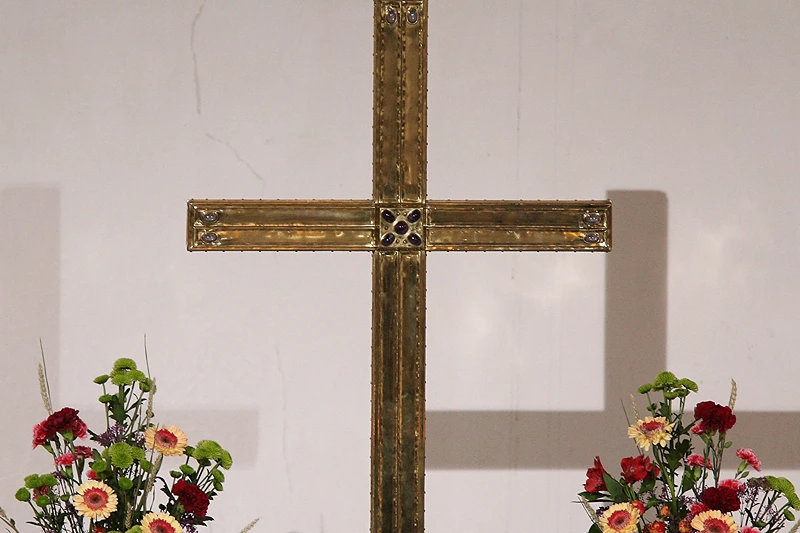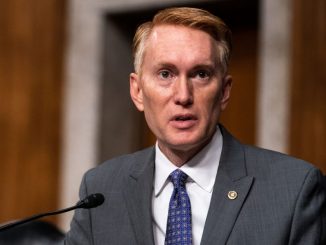

OAN Brooke Mallory
UPDATED 11:15 AM – Wednesday, April 19, 2023
The High Court will be considering a complaint brought forth by an Evangelical Christian mail carrier who had requested not to work on Sundays.
The justices of the Supreme Court expressed worry on Tuesday about a previous decision that now makes it challenging for businesses to request religious accommodations.
Gerald Groff, who claims that the USPS could have granted his request to be exempt from Sunday shifts based on his religious conviction that it is a day of worship and rest, presented oral arguments before the justices in his appeal.
Groff requests that the court simplify the process by which employees can file religious claims under Title VII of the Civil Rights Act, which forbids discrimination in the workplace on a number of grounds, including religion.
The court is debating whether to reverse, or at the very least explain further, a 1977 Supreme Court decision known as Trans World Airlines v. Hardison.
It was ruled, at the time, that employers are not obligated to provide accommodations if doing so would have even a minimum burden, or “de minimis,” the Latin term that the court favored.
According to Groff’s attorneys, the decision was in conflict with Title VII, which states that accommodations should only be turned down when doing so would place an “undue hardship” on the employer.
The Biden administration was represented by Solicitor General Elizabeth Prelogar, who did not defend the 1977 decision’s standard but urged the court not to entirely invalidate it. During the argument, the justices appeared to be looking for common ground with Prelogar.
“Some courts have taken this de minimis standard and run with it … and that’s wrong and we all agree that’s wrong,” said Justice Neil Gorsuch.
“Maybe… We could do a good day’s work and put a period at the end of it by saying that is not the law,” he added.
Justice Amy Coney Barrett seemed to support that strategy as well, suggesting that the case be remanded to the lower courts with the remark that, “to be clear, de minimis doesn’t mean trifling costs.”
Justice Elena Kagan’s remark served as an example of the apparent consensus on the bench on at least some of the case’s issues. However, the justices were unsure what that meant for Groff’s case since Prelogar claimed that even if a different standard were applied, he would still lose.
If the 1977 judgment were overturned, some justices expressed worry about overturning decades of judicial precedent on the subject.
Prelogar was questioned by Justice Brett Kavanaugh on how the court might alter the criterion “without destabilizing the law.”
From 2012 until his resignation in 2019, Groff, a non-career employee, worked as an auxiliary mailman in the Lancaster, Pennsylvania, region. Non-career employees refer to workers who are temporary that do not receive employee benefits and privileges. When other postal workers were not accessible, particularly on weekends and holidays, it was Groff’s responsibility to step in.
Groff was originally not required to work on Sundays, but things started to change in 2015 when it became necessary for Amazon goods to be delivered on that day. His management arranged for additional postal workers to deliver parcels on Sundays up until July 2018, in response to his request for a modification. After that point, Groff was informed that he was subject to punishment if he did not report to work.
In response to the Postal Service’s denial of his request, Groff quit and filed a lawsuit. According to a federal judge, the Postal Service had made a reasonable accommodation, and providing anything more would put the employer and his coworkers through unjustified difficulty. In a decision issued in May, the 3rd U.S. Circuit Court of Appeals in Philadelphia agreed.
The American Hindu Coalition, the American Sikh Coalition, and the Council on American-Islamic Relations are a few of the organizations that have expressed interest in the case and have filed papers in support of Groff and his religious request.
According to CAIR’s brief, Muslim women who frequently wear hijabs (headscarves) have suffered as a result of Supreme Court precedent that favors employers. This is due in part to uniform policies not taking the hijab into account. As a result, Muslim women are often denied employment opportunities, the group claimed.
The American Postal Workers Union, which estimates to have roughly 200,000 members, filed a brief warning the court that a decision in favor of Groff would harm other workers who do not share their religious beliefs by creating a “religious preference” for scheduling work on the weekend.
In the past, a Seventh-day Adventist employee at a Walgreens call center requested to not work on Saturdays, which is the denomination’s day of rest, but the court declined to consider the case in 2020, when it had a 5-4 conservative majority.
At the time, three of the conservative justices said in a statement that they were open to the notion of reexamining the 1977 ruling’s meaning of “undue hardship.”
The Conservative 6-3 majority became stronger in favor of religious discrimination claims shortly after the case was dismissed, due to the passing of Democrat Justice Ruth Bader Ginsburg and the appointment of Justice Amy Coney Barrett by former President Donald Trump.
After Barrett joined the high court, the justices in 2021 rejected several cases requesting them to reconsider the 1977 decision. Among those decisions, the court sided with a football coach for a public high school who claimed he was fired for leading prayer circles on the field after games.
Stay informed! Receive breaking news blasts directly to your inbox for free. Subscribe here. https://www.oann.com/alerts





Be the first to comment